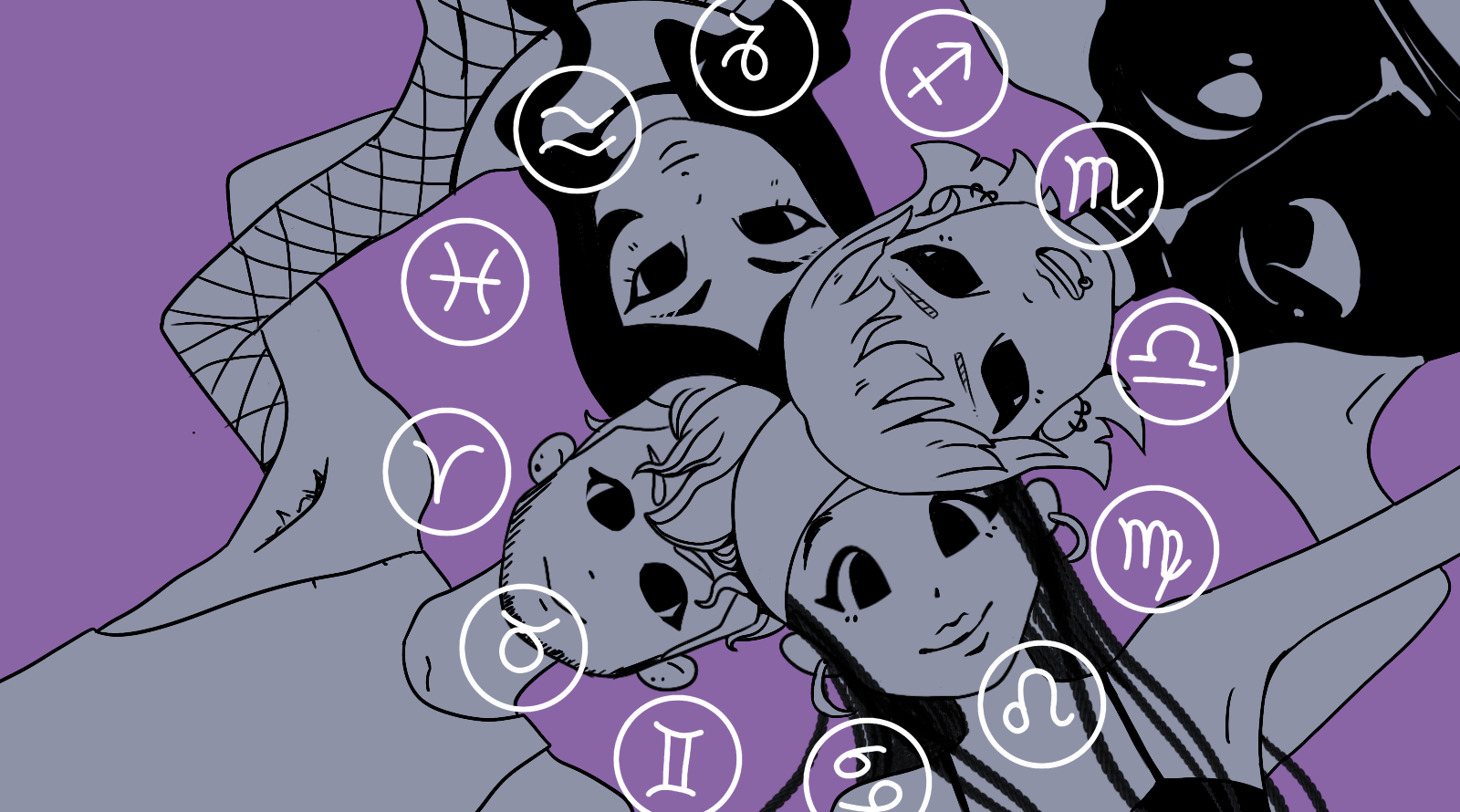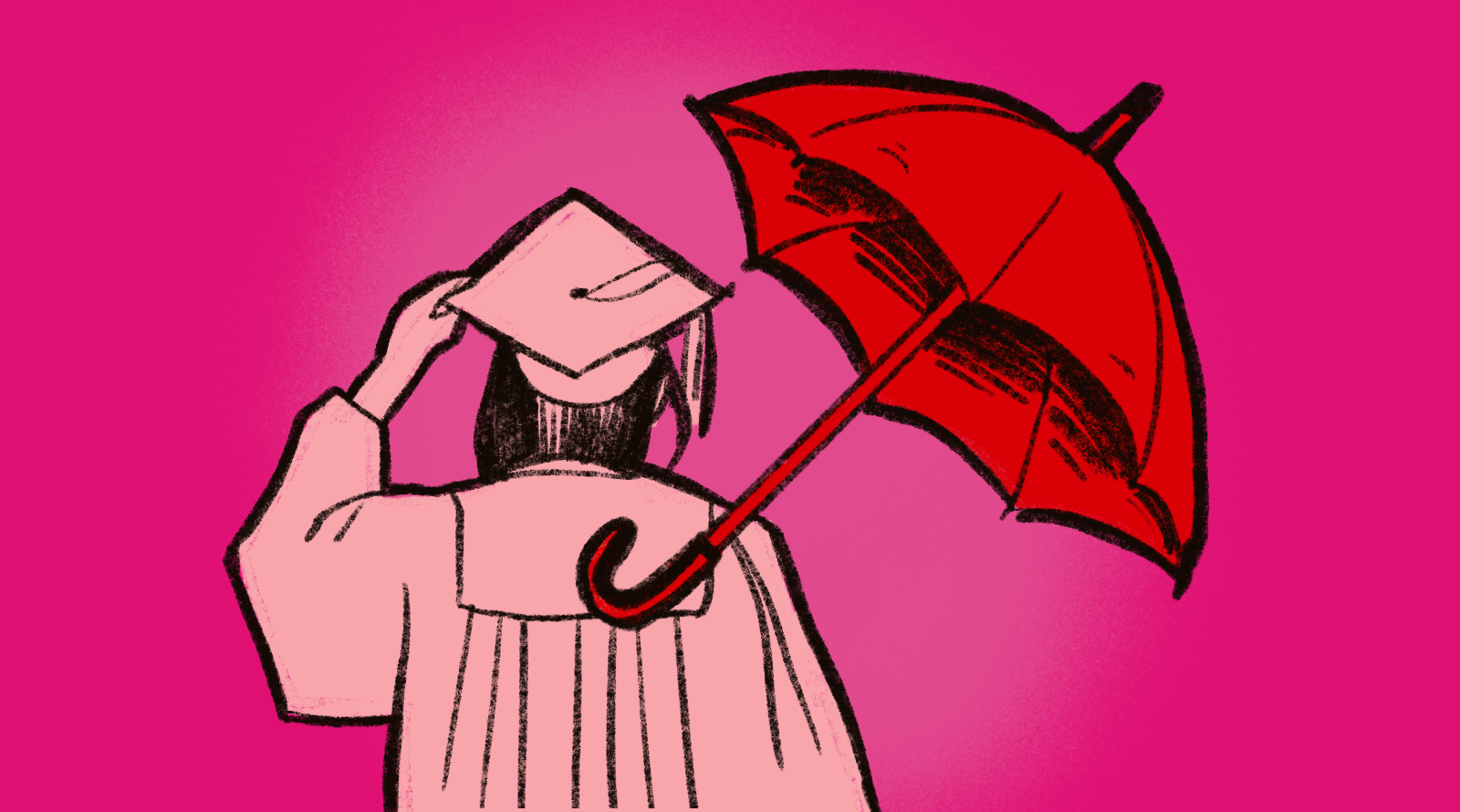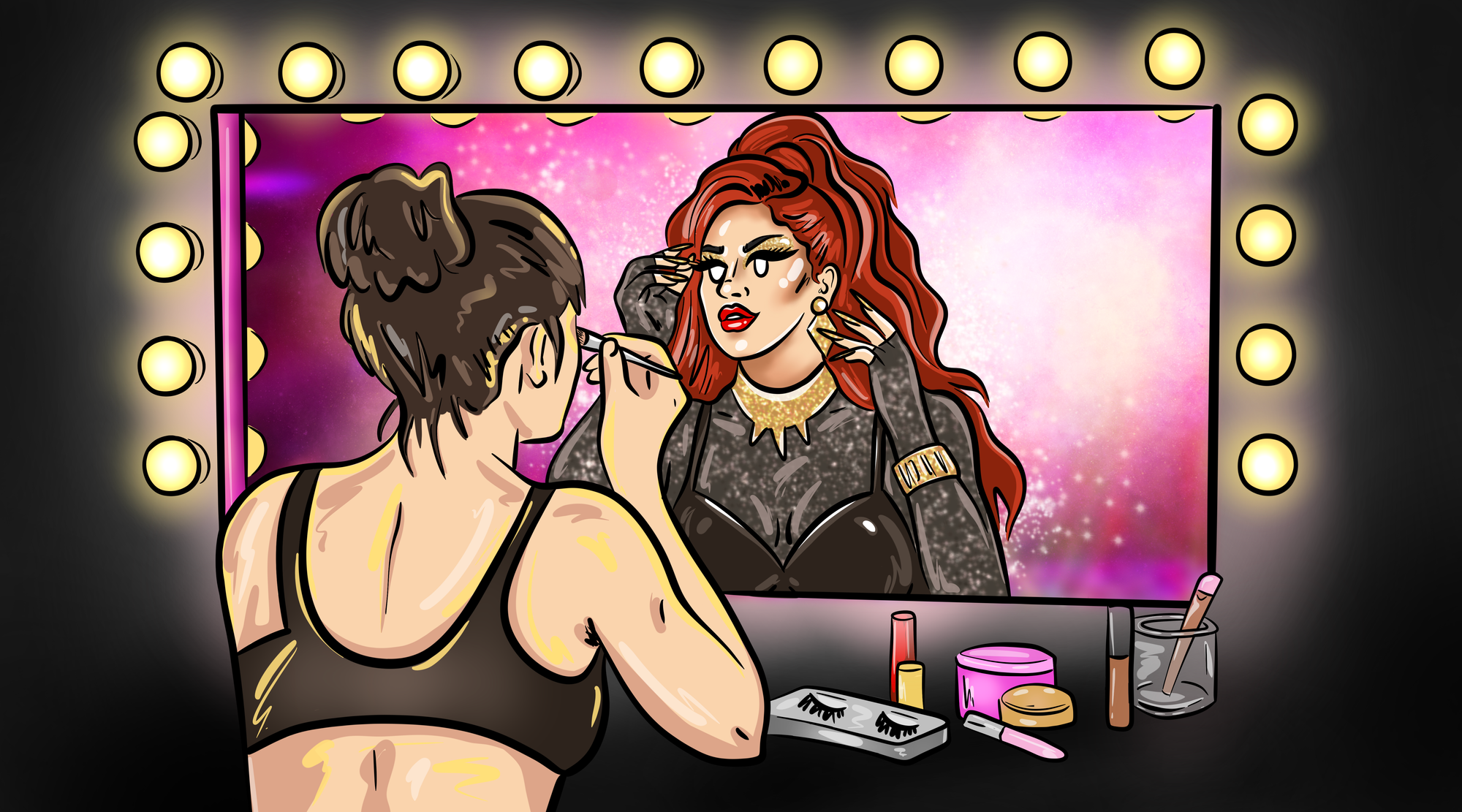Sex work encompasses many styles of work from escorting to porn performing and dancing. For those within the industry, identifying the link between sex work and performing is clear – it’s the backbone of our work. According to Merriam-Webster, acting is “the art or practice of representing a character on a stage or before cameras,” yet, recognition for us within the mainstream industry is null and void.
Ironically, some of our favorite sex symbols were and are characters – from Marilyn Monroe and her fantasy-inducing vocal delivery to Dita von Teese’s renown burlesque persona. But if you dive deeper, on a more explicit note, many of us have had favorite pornstars who tap into personas, too. For example, Lisa Ann, Pinky and more.
Non-binary porn performer Sage the Flame, specializes in eradicating the orgasm gap and in their work, acting and porn production are clearly intertwined. “As a former theater kid I can make connections between the world of acting and the production of porn all the time,” they said. “Of course, there's a spectrum of types of porn that one can produce. If you’re making amateur content there's not too much acting – but even still, there’s acting involved.” For example, ensuring you position your body towards the camera to enhance the viewers experience. On the flip side, “you can put on an entire production where you have lines, set a scene and portray a fantasy… acting can heavily play a role in that.”
In fact, the connection between sex work and performing dates as far back as the 1800s. Similar to young actors who flock to Hollywood each year hoping to make it big, underprivileged ballerinas would join the Paris Opera Ballet at young ages and work to master their skills. According to History, at the time, “sexual exploitation” of ballerinas was normal and wealthy men, referred to as abbonés, “turned the famous Paris Opera Ballet into a brothel.”
The ballerina-abbonés relationship ran so deep that famed architect, Charles Garnier, included a “foyer de la danse” in his opera for ballerinas to warm up and stretch before performances. The catch? The foyer de la danse was created for male patrons to watch these women prepare – essentially an exploitive pre-show strip tease.
The influences of sex work are rampant amongst mainstream acting, as well. The lifestyles of strippers being warped into an “aesthetic.” A great – but controversial example – is HBO’s The Idol. Referred to as “twisted torture porn,” by Rolling Stone, the series follows “a self-help guru and leader of a modern-day cult, who develops a complicated relationship with an up-and-coming pop idol,” reads the description. Throughout the series, the main character Jocelyn (Lily-Rose Depp) is being molded into the perfect performer. Sexy enough that she can elicit a fantasy, but not so much that she’s unattainable.
Within the series official trailer, a member of the rising idol’s team questions her ability to grasp her choreography, which appears to take several notes out of a baby stripper’s handbook on sex appeal. And if there was any doubt, the scene openly discusses the use of strippers. “I just wonder about those strippers,” a team member says, watching Jocelyn, the rising idol struggle to keep up. “Yeah they’re kind of out femme-ing her.. with the flips and the dips,” another chimes in. Every aspect of “performance” pulls from the culture of sex workers and it's a great example of how sex and sex work has fueled the creativity of Hollywood and the performing arts industry. They’re simply different sides of the performer coin.
Before the creation of the controversial show, the #MeToo movement (started by Tarana Burke in 2006), hit Hollywood.Finally acknowledging performing’s dark underbelly. The horrifying, but essential revelations gave Hollywood a much needed gift: intimacy coordinators. For those unfamiliar, intimacy coordinators are onset advocates that coordinate sex scenes. Checking in with actors on their boundaries, maintaining them, providing prosthetic genitals and assisting in filming, they ensure safety across the board.
Recently, leading ethical porn director Erika Lust has called for the acknowledgement of intimacy coordinators at both the BAFTAs and Oscars, as they are shifting the culture of sex on TV and film as we know it. But most importantly, in her statement she calls out the link between porn and Hollywood, and a few lessons the industry could learn on ethical porn. “Porn is a dirty word for many,” she said. “But as a female director in a still predominantly male-dominated porn industry… I bet Hollywood could learn from the ethical standards and expectations we place on set to protect cast members from exploitation, misogyny, and degrading behavior.”
She continues to detail how the mainstream film industry, led by men, has given them the upper hand in terms of exploitation and led to the creation of “casting couches,” where men in power expect young hopefuls to perform sexual favors in exchange for roles. A not dissimilar sentiment to our ballet performers during the gilded age.
So, how did we lose the plot? If sex work and performing are synonymous, how are we kept out of mainstream media? It seems respectability politics and what the dominant culture deems appropriate have stolen the plot. Again.
Mainstream media tends to steer clear of overt sexuality, despite sexuality running shit behind the scenes. Often sex scenes are called “love” scenes and there are several notions on what’s “too far,” like featuring tongues during a makeout sesh.
Essentially, sex work is highly stigmatized so culture does everything in its power to never be associated with it. As a result, acceptable performers can be more highly regarded socially and viewed as artists. These projects can then be submitted to major film festivals like Cannes Film Festival, and even spark worldwide discussion, such as The Idol.
Acknowledging porn as art would call into question everything we know and understand as art. Because of this prim attitude, sex work, particularly porn, have been removed from conversations around art and acting. Leaving performers without the protection or union rights they deserve. But as sex workers applying to the Actor’s Guild would know — questioning everything we know about art and it’s industries, to include sex work performers, can only be a good thing.
In fact, similar to Lust calling for the acknowledgement of intimacy coordinators, a role that didn’t rise to prominance until a few years ago, making adjustments for sex work shouldn’t be too far off. The similarities between sex work and acting are clear. The layer of sex work’s criminalisation in many regions complicates things, and only fuels the toxic politics deeming it “unacceptable.”
Porn performer Sage the Flame expressed the need for sex workers in the Guild perfectly:
“Acting and the production of porn really do go hand in hand. I think it would make sense for them to participate and I also think that it would destigmatize sex work. At the end of the day we’re all acting on camera. Some of us may be having sex on camera, some of us might not – but we’re all acting on camera.”




